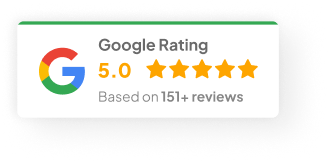02 May 25
What is the Average Cost of Website Design for Small Business?
If you’re thinking about getting a new website but aren’t sure what it’ll set you back, you’re definitely not alone. Website costs can swing all over the place. Some options look cheap but come with big catches. Others cost a fair bit but don’t always deliver the results you want. It’s confusing, I know.
Let me break down what really drives the price of a small business website—so you know what you’re getting into before you spend a cent.
What Really Affects Website Costs for Small Businesses?
Here’s the thing: a lot of business owners treat their website like a digital brochure—throwing up a few pages and calling it done. But a website is so much more than that. If done right, it can be your powerful marketing tool that pulls in customers and grows your business.
So, what makes a website cost $5,000 and another $50,000? It usually boils down to a few key things:
Project size & scope
How many pages do you need? A simple 5-page site will be way cheaper than one with 30 pages, booking systems, or an online store. The more features, the more time it takes to build and test.
For example, an e-commerce site means you’ve got product pages, payment gateways, shipping calculations… it all adds up fast.
Customisation level
DIY platforms like Wix or WordPress are cheap and fast, but they come with limits. If you want something unique that truly fits your brand and can grow with your business, custom-built sites are the way to go — but they cost more.
Type of website
Here’s a quick look:
- Brochure sites — simple, just to get you online. Least expensive.
- Lead generation sites — with forms, tracking, and follow-up tools. Mid-range.
- E-commerce — complex, with payments, carts, product management. Pricier.
- Custom apps or client portals — think login areas, integrations, data security. Top-tier cost.
Features & functionality
What does your site need to do? Contact forms or newsletter signups are easy and cheap. Booking systems, CRM integrations, or sales funnels add complexity — and cost. Planning to sell stuff online? Prepare for a bigger investment.
Content development
Good content is a game-changer. If you have your text and images ready, great. If not, hiring a pro copywriter or photographer will add to your budget — but it’s worth it. Quality content helps SEO and turns visitors into customers.
Who you hire
Your team matters.
- Freelancers can be cheaper but might struggle with bigger projects.
- Small-to-mid agencies strike a good balance.
- Specialist agencies (like us at Chromatix) focus on high-performing, conversion-driven sites — and that’s reflected in the price.
One-Off Costs vs. Ongoing Expenses
A website isn’t something you build and forget. There’s always ongoing work to keep it running smoothly.
One-time costs might include:
-
Design and development
-
Domain registration
-
Email setup and branding
-
Initial SEO and site speed optimisation
Ongoing costs often cover:
-
Hosting (usually $10–$100/month)
-
Maintenance and updates ($100–$500/month depending on complexity)
-
SEO tracking and performance reports
-
Plugin or service fees
-
Content updates and user experience tweaks
Websites need regular TLC to stay fast, secure, and relevant.
So, What’s a Small Business Website Actually Cost?
Here’s a ballpark:
-
Basic small business sites usually run between $5,000 and $15,000
-
High-performance, custom sites can be $10,000 to $50,000+
-
DIY platforms like Wix or Squarespace: $500 to $1,500
-
Freelancers typically charge $1,500 to $5,000
Why “Cheap” Can End Up Costing You More
I get it, saving money is important. But cheap websites often come with big drawbacks:
-
Poor mobile responsiveness
-
Slow loading speeds
-
Weak SEO foundation
-
Generic design that doesn’t build trust
-
Hard to update, or no ongoing support
Worst case? You’ll be stuck redesigning the whole thing in a year, doubling your costs.
A well-built, strategic website saves you money in the long run by working hard for your business.
Your Website Is an Asset, Not Just an Expense
Think of your website as your 24/7 salesperson, lead magnet, and brand ambassador. Spend wisely, and it pays off.
If you’re serious about growth, investing $5,000 to $15,000 (or more) to get a custom, conversion-focused website is money well spent. It should fit your goals, your competition, and what you want to achieve.
At Chromatix, we build websites designed to deliver results, not just look pretty.
Not sure what budget fits you? Give us a call — we’re happy to help you figure it out.


